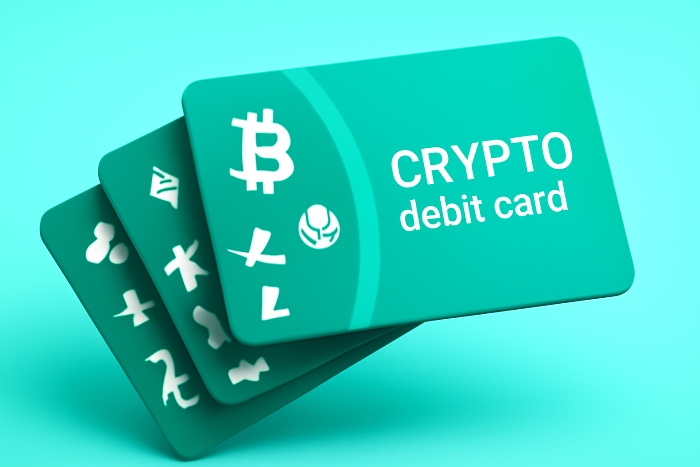
Crypto debit cards are changing the way we spend digital assets.
With one of these in your pocket, you’re no longer limited to trading or holding — you can tap into your crypto holdings and make everyday purchases just like you would with a traditional debit card.
A crypto debit card lets you pay at any location that accepts Visa or Mastercard, instantly converting your crypto into fiat at the point of sale.
Whether you’re grabbing a coffee or booking a flight, it’s crypto made practical.
Prepaid Crypto Debit Cards — A Flexible Way to Spend Your Crypto
There’s more than one kind of crypto debit card, and your choice really depends on how hands-on you want to be.
Prepaid crypto debit cards work similarly to gift cards — you load them with a specific amount of cryptocurrency in advance.
This gives users more control over spending, especially those who want to manage their crypto exposure without surprises.
Some cards offer real-time conversion, while others require you to top up your balance manually.
And if you’re into perks, crypto debit card rewards are worth checking out.
Some cards offer cashback in Bitcoin or other tokens, discounts on partner platforms, or even staking bonuses.
Just be sure to double-check which supported cryptocurrencies are compatible.
Not all cards support every token — some are limited to major coins like BTC, ETH, or USDT.
What to Consider When Choosing Card Issuers
Many cryptocurrency exchanges now offer their own branded cards, while others partner with fintech companies or third-party providers.
Either way, make sure the provider is reputable, has strong user reviews, and complies with all relevant regulatory compliance standards. Here are the key factors:
● Security features should be front and centre. Look for cards that support two-factor authentication (2FA), chip and PIN, mobile freezing, and fraud monitoring. Your card should protect your assets just as tightly as your private keys.
● Transaction fees. These can vary widely — some issuers charge a flat conversion fee, others take a percentage, and a few even offer zero-fee spending under certain conditions. Make sure you’re not caught off guard by hidden costs, especially if you plan on traveling or making international payments.
● Taxes. Using a crypto debit card means every transaction is technically a crypto-to-fiat sale, which can trigger capital gains or losses. Yes, even buying a sandwich can have tax implications. Some card issuers provide end-of-year summaries, but they don’t track your full cost basis — that part’s on you. Using portfolio tracking software or spreadsheets is highly recommended to stay compliant and avoid tax headaches.
Crypto debit cards are bridging the gap between digital assets and real-world spending.
Whether you opt for a prepaid crypto debit card to stay in control or a full-featured option with juicy crypto debit card rewards, there’s something out there for every kind of trader.
Just keep an eye on fees, security features, and regulatory compliance to ensure a smooth experience.


















Recent Comments